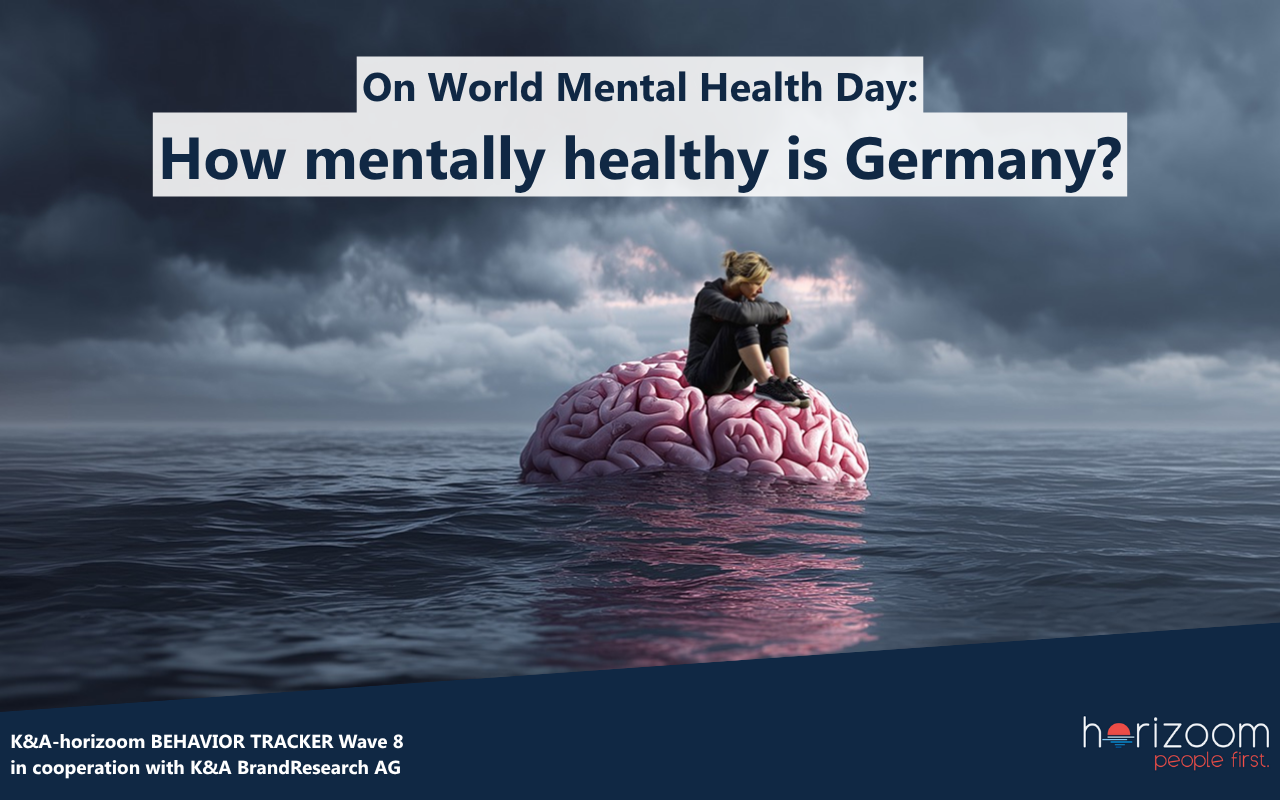Every 8-10 weeks, we conduct representative studies on socially relevant topics in the German horizoom panel in collaboration with the market research institute K&A BrandResearch AG from Röthenbach near Nuremberg. We use intelligent questioning techniques to examine so-called say-do gaps, i.e., differences between self-reported statements and actual everyday behavior.
The latest study, conducted on the occasion of the annual World Mental Health Day on October 10, focused on the mental health of Germans, with an emphasis on stressors and resilience, mental challenges, and support services.
According to the United Nations, more than one billion people worldwide live with mental illness, with depression and anxiety disorders being the most common. In Germany, according to data from the AOK, around 9.5 million people suffered from depression in 2022. The economic costs are considerable: depression accounts for 9.5 billion euros (= 2.2% of all healthcare costs), with additional production loss costs of around 6.9 billion euros. Depression accounts for 7.7% of the total economic costs of incapacity to work. According to the WHO, healthcare is inadequate worldwide: Only 9% of those affected receive adequate care.
Our study also found that Germans suffer from numerous mental health problems and that 36% of Germans rate mental health in Germany as (rather) poor. At the same time, 72% believe that there is too little support available in Germany for people with mental health problems, although 49% of those surveyed said they had spoken to a therapist or psychologist at least once and 88% were aware of at least one support/counseling service (such as telephone counseling, Weißer Ring, church counseling services, Nummer gegen Kummer, and many more). These support services could become increasingly important in the future, as our study shows that younger generations (Gen YZ) in particular suffer from mental illness and experience above-average levels of anxiety, stress, and other mental health issues.
On Mental Health Day, horizoom and K&A BrandResearch want to draw attention to the fact that there are institutional support services as well as long-established and proven strategies for dealing with mental health issues and developing mental resilience. Detailed results and information on the study, including a study profile, can be found at: https://ka-brandresearch.com/eigenstudien
Picture: [KI] Ina Kerckhoff

